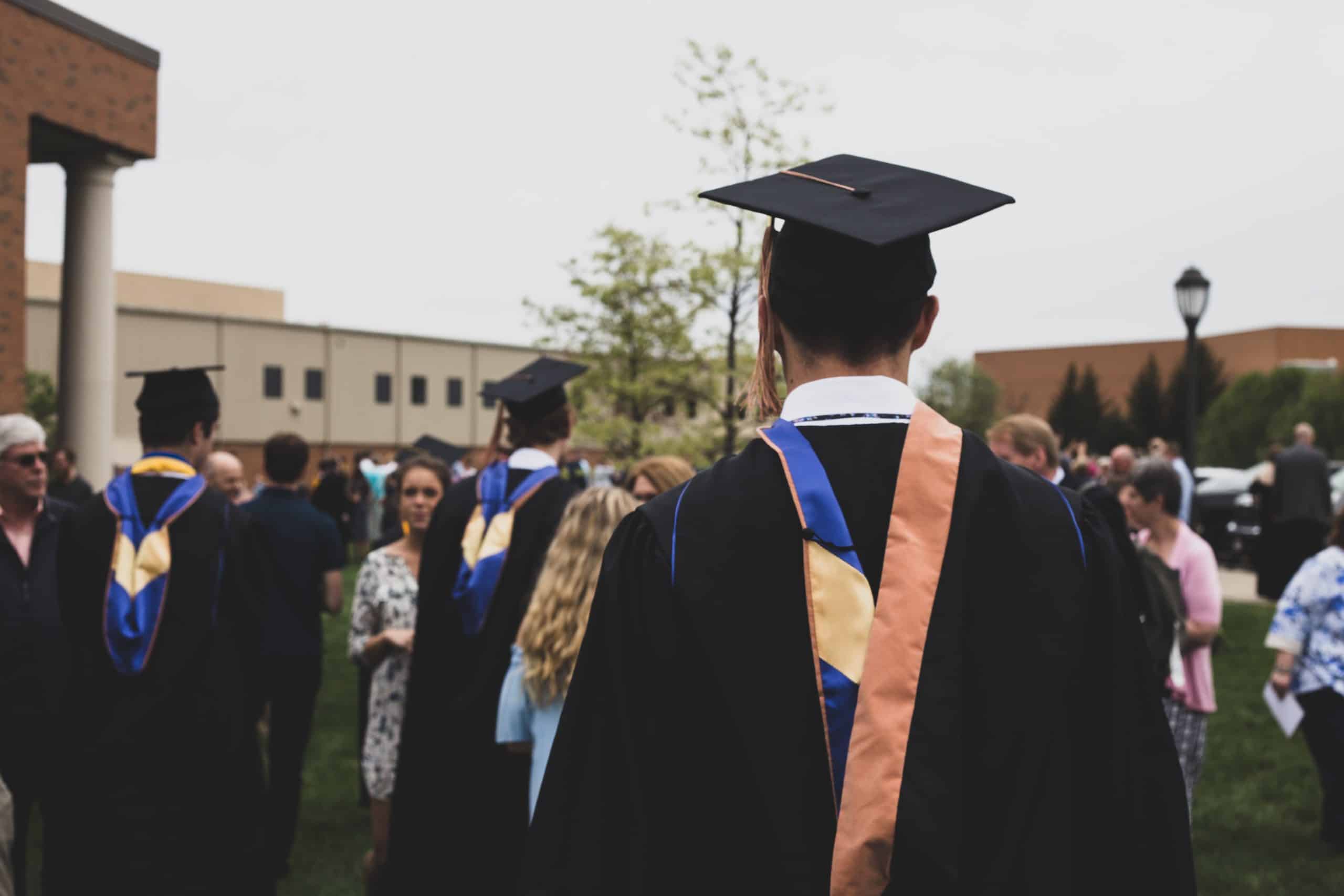Sometimes, life’s solutions – well, they just happen.
At least, 27-year-old Daniel Gutstein of Lincolnwood, Ill. thinks so. That’s because a cousin’s wedding and a chance encounter there between his mother and the founder of the Mind-Eye Institute in Northbrook, Ill. put Daniel on a path to finding relief from years of struggles with concentrating, focusing and simply completing school assignments efficiently.
“It was never a problem of being successful in what I did. It was always a matter of having to expend far too much effort for the amount of work that I needed to complete,” says Daniel, who recently graduated with a master’s degree from DePaul University. He credits his most recent academic success to the therapeutic eyeglasses — Brainwear™ — prescribed by Deborah Zelinsky OD, who happened to be at the same wedding as Daniel and his family.
“To complete my master’s thesis on physician-patient interactions, I spent long hours in the research laboratory extracting data. I don’t think I would have been able to get through all that had it not been for the Mind-Eye Institute,” says Daniel.
The Mind-Eye Institute (https://mindeye.com) has demonstrated significant success in using prescriptive eyeglasses, contact lenses and other optometric interventions to help patients develop and/or redevelop visual skills .
“By changing the way light disperses across the retina, we can affect how the brain reacts to information about the environment and affect a person’s spatial awareness, body posture and selective attention to sound,” says Dr. Zelinsky, who is executive director of research at the Mind-Eye, in addition to being its founder.
“To enhance brain function, our Mind-Eye team uses Brainwear™ as one way to alter the environment,” Dr. Zelinsky explains. “Even people who do not need glasses to see clearly can benefit, because our glasses are designed not for 20/20, but for comfort. They are meant to stimulate the peripheral eyesight, as well as the eye’s central eyesight.”
Daniel remembers the difficulty he had in high school and college just concentrating on lectures and trying to comprehend what was being presented.
“I recall sitting in my freshman high-school Western Civilization class and not being able to pay attention to what the instructor was presenting. Just before an exam, the teacher would give an oral review of material to be tested. I would record the review and then stay up all night listening to it over and over again – practically memorizing it – in order to pass the test,” Daniel relates.
He also tended “to fall asleep a lot during the day,” especially trying to get through math assignments. In fact, the sheer effort of focusing on any specific task would literally “create a feeling of pressure on my forehead and temples,” Daniel says.
In conversation with Dr. Zelinsky at the wedding, “she seemed to think at least part of my problem might be due to concussions. I do not specifically recall experiencing one, but concussions are certainly possible, having played sports a lot,” Daniel says.
Daniel followed up his cousin’s wedding with an appointment at the Mind-Eye Institute – and the rest, of course, more than meets the eye.
Since wearing the Mind-Eye glasses, “I have been able to accomplish a lot — without exhaustion and without the amount of effort needed in the past to complete a task. My concentration is much better, too, and that pressure I used to feel in my forehead and temples? – well, it’s gone,” he says.
Dr. Zelinsky is not surprised
The retina is made of brain tissue and sends signals to more than simply an eyesight center. Retinal signals combine (partially beneath a conscious level of awareness) with other sensory signals – from hearing, smell, taste and touch. Further brain processing synthesizes the information and reacts and responds depending on internal sensory signals.
“When intact, retinal processing enables people to understand and interact appropriately with the world around them. If brain circuitry is out of sync, because it has been disrupted by injury or disease, or is under-developed, people can become confused about their surrounding environment and exhibit inappropriate reactions and responses. If eyes and ears are not in sync, people have to continuously monitor their shifting attention, and that effort becomes exhausting,” Dr. Zelinsky explains.
She adds, “as optometrists, our challenge is to move from simply eye care to ‘brain care.’ Let’s leave standard 20/20 eye acuity testing, which was developed 160 years ago, where it belongs – in the 20th century. Instead, we must update our approach to be more in line with today’s modern, high-tech world by assessing patients’ peripheral processing, as well as central eyesight.”

Success Stories, Processing Disorders
Daniel Finishes Master’s Thesis; Credits Mind-Eye for Academic Success
His Concentration Improves, Thanks to Wedding Encounter
